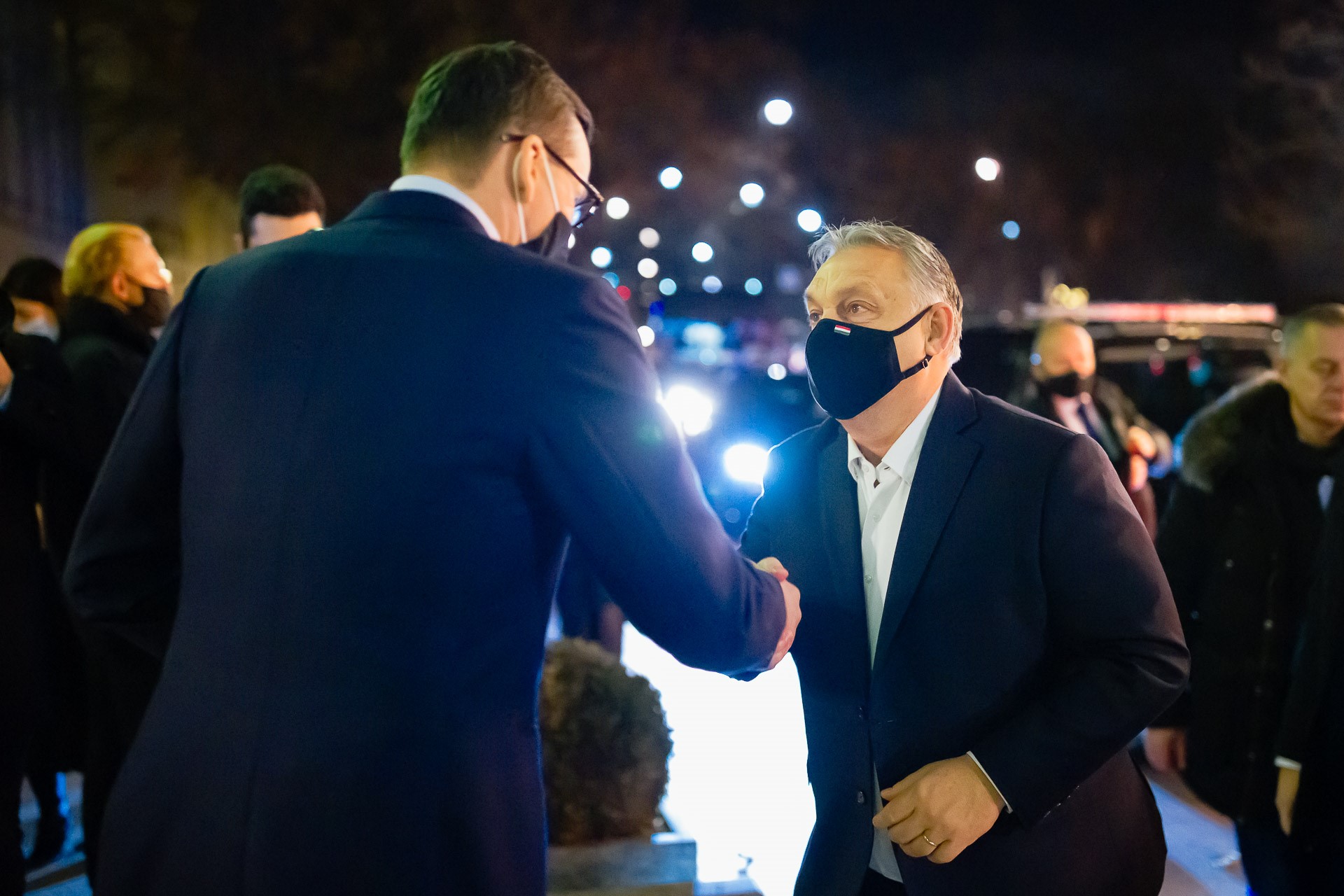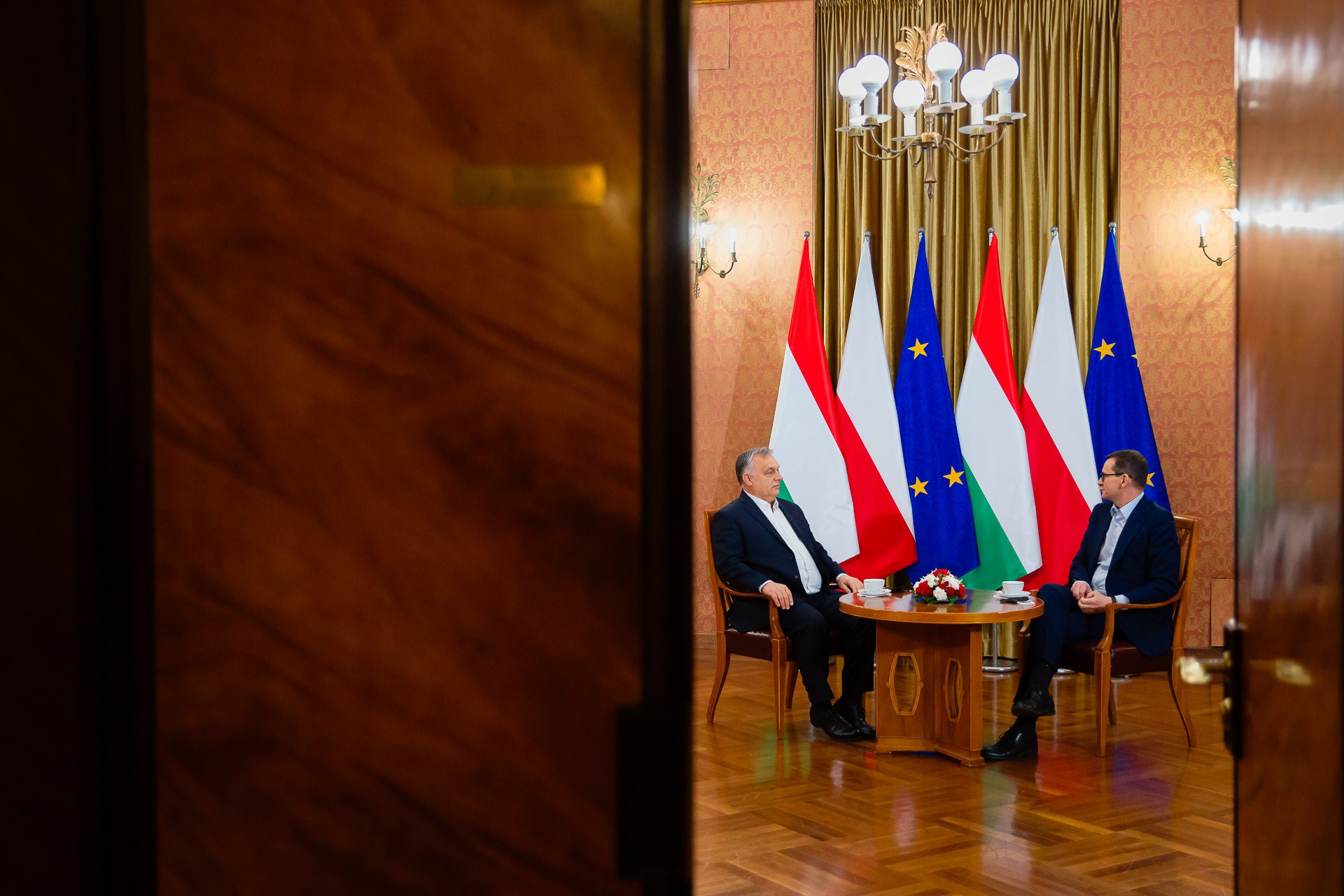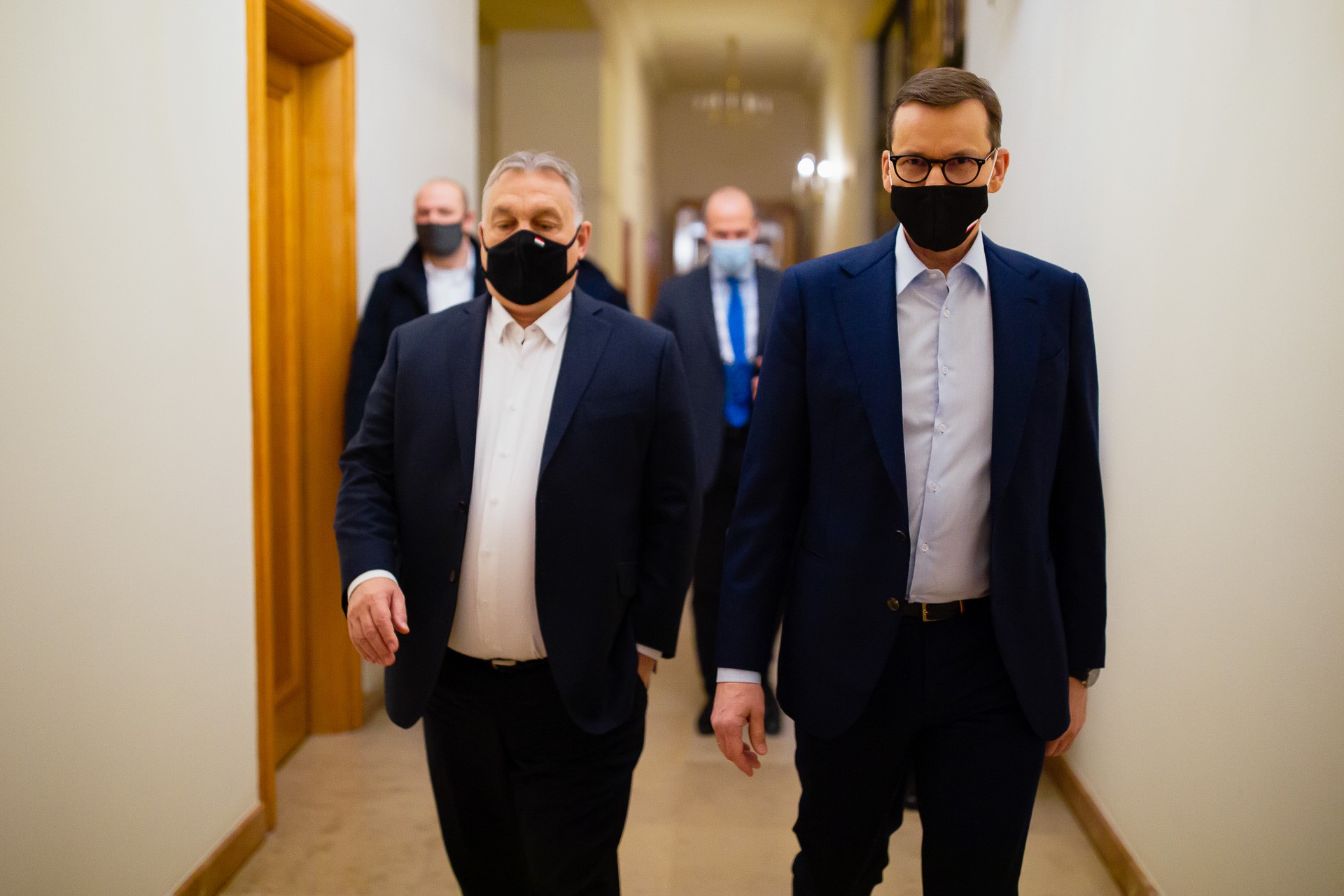Prime Minister talked to the head of the Hungarian government about security in the region
03.12.2021
Prime Minister Mateusz Morawiecki met with Prime Minister Viktor Orbán in Warsaw. They discussed, among other things, security in the region in the context of the current situation on the Polish-Belarusian border of the European Union and in the east of Ukraine.

Poland’s diplomatic offensive to solve the crisis on the eastern border of the European Union
The situation on the Polish-Belarusian border of the European Union is the main topic of talks held between Prime Minister Mateusz Morawiecki and Poland’s foreign partners. On 23 November, in Budapest, during the extraordinary meeting of the Visegrád Group, the head of the Polish government emphasized that Poland’s diplomatic offensive to resolve this matter has produced positive effects, as demonstrated, for example, by a smaller number of new migrants that come to Belarus. Prime Minister Viktor Orbán pointed out that the EU is now under unprecedented migration pressure and it is necessary to correct the EU policy, including to increase funds for the protection of the border.
As part of the diplomatic offensive to solve the crisis on the eastern flank of the European Union, Prime Minister Mateusz Morawiecki visited 11 countries in 6 days and talked to several of the most important European leaders and politicians. All that in order to ensure maximum security in Poland and in the entire European Union.
Factors destabilising the situation in Europe
Hybrid warfare operations to destabilise the situation have been launched on the Polish-Belarusian border of the European Union since June 2021. Using migrants, the regime of Lukashenko tries to threaten the security of Poland and the European Union. During the last weeks, these operations intensified, and Belarusian services became involved in the provocation.
Operations conducted on the border are some of the factors that affect the current situation in Europe. The issue related to power industry is equally important. High costs of CO2 emission allowances and gas prices set by Gazprom have a direct impact on high energy prices; this leads to inflation in many European countries.



